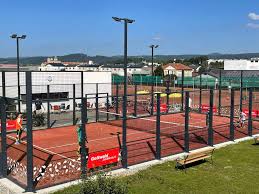

The Rise of Padel Tennis and the Role of Factories in its Growth
Padel tennis, a racket sport that blends elements of tennis and squash, has been rapidly gaining popularity across the globe. With its origins in Mexico in the 1960s, the sport has made significant inroads into Europe, particularly in Spain and Italy, and is now experiencing a surge in interest in many other countries. This growing demand for padel tennis has led to an increase in production from specialized factories focused on creating high-quality equipment. This article explores the growth of padel tennis and the crucial role that manufacturing factories play in supporting this dynamic sport.
Understanding Padel Tennis
Padel tennis is played in doubles on an enclosed court roughly one-third the size of a traditional tennis court. The game is characterized by its unique scoring system, the use of solid rackets without strings, and the walls that players can use to bounce the ball, similar to squash. These features make padel an accessible sport that can be enjoyed by players of all ages and skill levels. The inclusion of fun and strategic gameplay elements has attracted individuals and families alike, fostering a community around the sport.
Market Demand and Growth
As the sport continues to grow in popularity, so does the overall market for padel tennis. In regions like Europe and South America, courts are being constructed at a rapid pace, and clubs are seeing an influx of new members eager to participate in this engaging activity. According to various industry reports, the global padel market is expected to reach notable figures in revenue in the coming years, reflecting the sport's increasing acceptance and popularity.
The Role of Factories
To meet this rising demand, factories specializing in the production of padel tennis equipment—rackets, balls, nets, and court materials—have become essential. These factories focus on both innovation and quality, ensuring that players receive the best possible equipment to enhance their game. Let's delve into some specific roles that these factories play in the padel industry
Factories are at the forefront of producing a wide range of equipment tailored for padel players. Modern factories employ advanced technologies and materials, including composite materials and lightweight polymers, that enhance performance. The design of rackets has significantly evolved, with manufacturers creating models suited for different player styles, whether focused on power or control.

2. Quality Assurance
Quality control is vital in the production of sports equipment. Factories adhere to strict standards to ensure that each racket and ball meets specific performance criteria. Rigorous testing is performed to ascertain that the equipment can withstand the rigors of play while still providing players with a satisfying experience.
3. Customization and Personalization
Today’s consumers often seek personalized products that reflect their style. Factories have adapted to this trend by offering customization options for rackets and gear. Consumers can choose colors, designs, and even weight balances tailored to their preferences, allowing players to feel more connected to their equipment.
4. Sustainability Initiatives
With increasing awareness of environmental issues, many factories are implementing sustainable practices. This includes sourcing eco-friendly materials and minimizing waste during the manufacturing process. By taking these steps, the padel tennis industry can contribute positively to environmental sustainability while supporting the growing consumer base.
5. Global Expansion
As interest in padel expands beyond Europe and South America, factories are crucial in establishing a global presence. They work on logistics for international distribution, ensuring that quality equipment is available to new markets. Moreover, factories collaborate with local clubs and organizations to promote the sport, hosting events, and even sponsoring players, which helps boost visibility and participation.
Conclusion
Padel tennis is positioned for continued growth, driven by increasing player participation and the establishment of local clubs throughout various countries. Specialized factories play a fundamental role in this movement by developing high-quality equipment that enhances the gaming experience, ensuring that players can engage in the sport at their best. As the sport grows in popularity, the collaboration between manufacturers and the padel community will be essential in shaping its future, with factories leading the charge in innovation, quality, and sustainability. This collective effort promises to keep padel tennis on the rise for years to come, creating opportunities for both players and manufacturers alike.
High-Performance Industrial Flooring Solutions China Paddle Tennis Court for Sale
High-Performance Industrial Flooring Solutions Durable & Cost-Effective
Homogeneous Transparent Floor – Durable & Stylish Rubber Floor Solutions
Premium Homogeneous Transparent Floor for Durable & Stylish Spaces Rubber Floor Solutions
Premium Sports Floor Solutions Durable PVC Sports Floor & Rubber Floor for Gyms
Durable Rubber Composite Floor Premium Rubber Floor & Mats Solutions